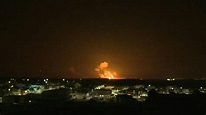Featured
article
- Get link
- X
- Other Apps
Chemical Escalation: European Intelligence Confirms Russia's Use of Banned Agents in Ukraine

European intelligence agencies have revealed alarming evidence that Russia is systematically deploying chemical weapons in its war against Ukraine. According to a joint report released on July 4 by the Netherlands Military Intelligence and Security Service (MIVD), the Dutch General Intelligence and Security Service (AIVD), and Germany’s BND, Russian forces have intensified the use of banned chemical agents, including the choking agent chloropicrin.
Chloropicrin, a substance outlawed under the Chemical Weapons Convention, is reportedly being dropped from drones into Ukrainian trenches to flush out soldiers, making them vulnerable to follow-up attacks. Dutch Defense Minister Ruben Brekelmans described the situation as “absolutely unacceptable,” warning that Russia’s normalization of chemical warfare poses a threat not only to Ukraine but to global security.
Since the full-scale invasion began in 2022, Ukraine has documented over 9,000 instances of chemical attacks, with at least three confirmed fatalities and thousands more reporting symptoms linked to toxic exposure. Intelligence officials say this is not a case of rogue battlefield improvisation but part of a large-scale, state-backed program involving increased research and recruitment of scientists for chemical weapons development.
The revelations have prompted renewed calls for tougher international sanctions and for Russia’s exclusion from global bodies like the Organisation for the Prohibition of Chemical Weapons (OPCW). While Russia denies the allegations and accuses Ukraine of similar actions, Western intelligence agencies maintain that the evidence is both credible and deeply concerning.
Popular Posts
Midnight Blast Shakes Gaza Skyline Amid Rising Tensions
- Get link
- X
- Other Apps
Trump's Six Words: "I'm Going to Stop the Wars"
- Get link
- X
- Other Apps



Comments
Post a Comment